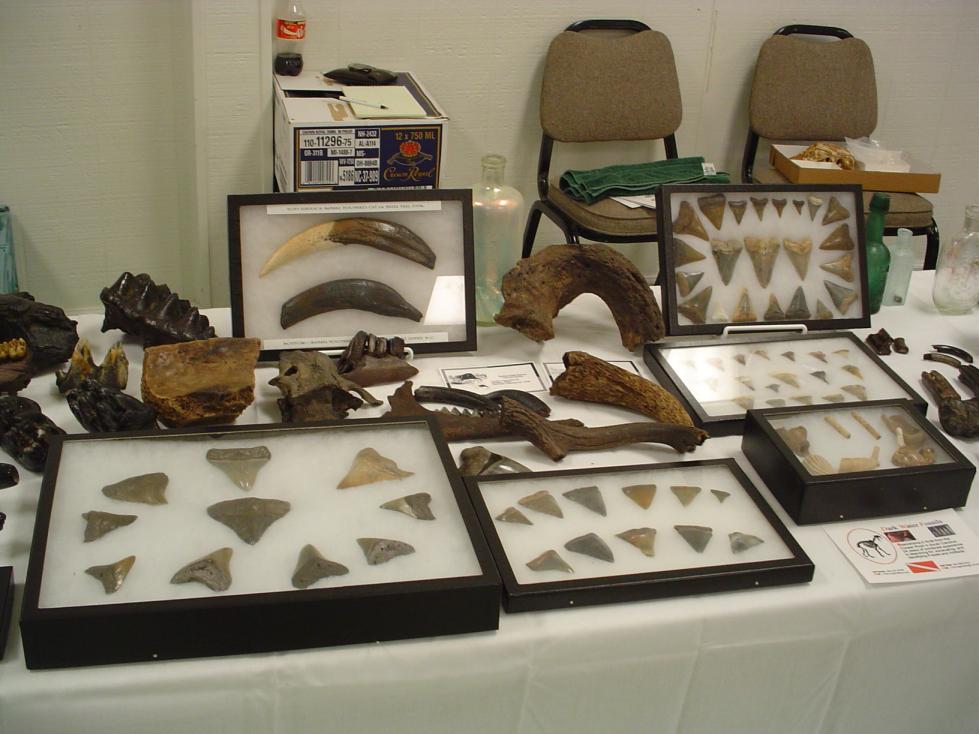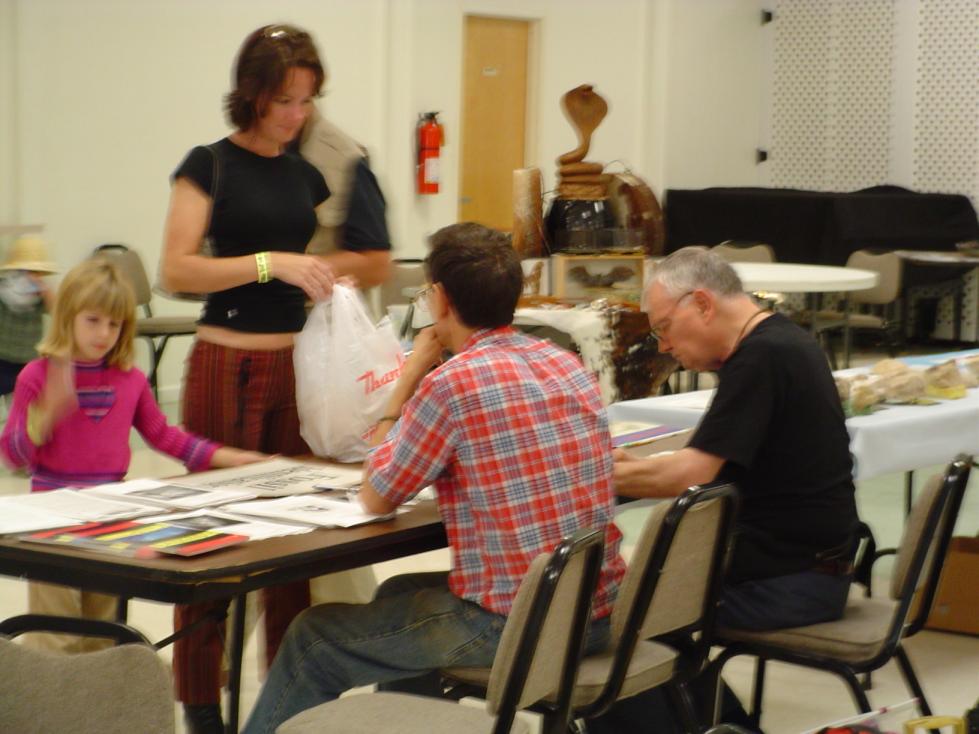November 2 - Moncks Corner, SC - The annual Cypress Gardens fossil show. was again the focal point of the local SC paleo-commmunity this past November 2nd. Collectors from all over the state as well as a few adjoining ones proudly showed their finds as spectators could only marvel at the diversity of the displays. As one would expect, there were plenty of local fossils to see. Henry Crowley's fantastic display of river finds, furnished with two complete seven inch megalodon teeth, caught more than just a few passing glances. His case of parotodus teeth was awesome to behold. As an added bonus, he had some great pleistocene fossils, too. Among my favorites of the day was his giant section of crocodile jaw with multiple teeth.
 
Dark Water Fossils display was dominated by pleistocene treasures - a large portion of American Mastodon jaw with 2 teeth was surrounded by tapir, beaver, deer, and saber cat fossils. Beautiful skull casts drew the attention of every aspiring paleontoligist. A superb bottle from the late 1600's was the talk of the table, though. Its finder said it was sitting upright on the bottom of the river by itself just waiting to be found or destroyed.
 

Black River Fossils had a plethora of wildly colored land fossils. The fabulous marbling and contrasting colors were a draw for many.
 
The North Carolina Fossil Club had a wide variety of fossils from the world renowned PCS Phosphate Mine in Aurora, NC. The 5 inch megalodon teeth on display were truly worthy of the title "Gems". They also had a nice display of whale material from the mine and from the mines in Harleyville, SC. A beautiful archaeocete display graced the corner of their table.

One of the finest displays was Paul Bailey's associated whale fossils from the Chandler Bridge formation in Summerville, SC. He wrote an informative flyer about the find available here.

A large table of Oreodont (oligocene mammal) fossils from Nebraska served to remind visitors and presenters alike that fossils exist outside the Carolinas.

Amatuers were not the only participants in the event. The Charleston Museum had a geologic layer based presentation including Eocene shells from the Santee Limestone, oligocene whale skull, sea turtle from the Chandler Bridge, and shells from the pliocene Goose Creek formation.
 

The Smithsonian sent some of its best to identify fossils that guests at the show brought for identification.

A final exclamation point to this fine show were the live demonstrations. Mark Butler shared his 25 years of experience flint knapping as he created spears, points, and axes from rocks found on the ground, deer antlers, and pieces of copper. Outside, kids could sort through a giant pile of dirt to take home a few fossils of their own. I don't know what it is about shows. You'd think that I would have had my fill of fossils that day. But I didn't. I was inspired so I hit a tried and true old spot on the way home. What a day! A show where I was both the drooler and droolee, then I found a flawless parotodus tooth on the way home. It was a whole day of fossils that I would love to repeat next year. |